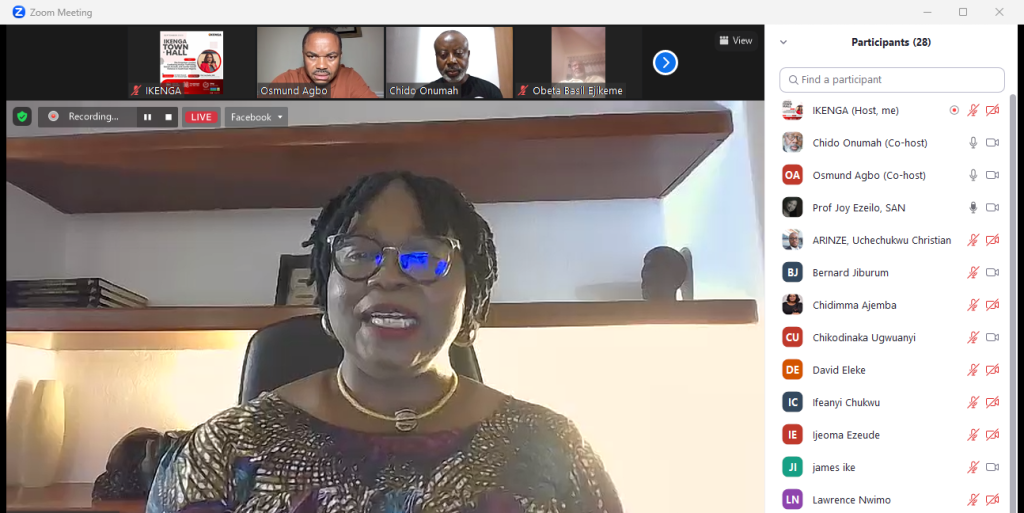Lawrence Nwimo, Awka
Rights activist and former United Nations Special Rapporteur on trafficking in persons, Professor Joy Ezeilo, has said that no fewer than 700 million women are still facing sexual and gender-based violence (GBV) globally.
Prof Ezeilo made the disclosure when she was featured as a Keynote Speaker in the September edition of the Ikengaonline Monthly Town-Hall Meeting themed: “The Forgotten Victims: Combating Human Trafficking, Sexual Assault, and Gender-Based Violence in South-East Nigeria,” on Thursday.
She said this is despite the campaigns against such practice in different parts of the world including Nigeria and South-East in particular.
She said women are increasingly becoming endangered species and men have continued to derive joy in subjecting them to inhumane and wicked practices in the form of superiority.
According to her, about 736 million women are still affected by sexual and gender-based violence, especially in their matrimonial homes, a spike she said has been witnessed globally since the era of the COVID-19 pandemic.
Speaking further, Professor Ezeilo, who is the Chairperson, Sexual Assault Referral Network (SARC); and Founder, Women Aid Collective (WACOL), said that sexual violence was never an Igbo culture, but regretted that in the present age, some men still treat their wives with iron fists.
“I am becoming worried as an Igbo woman, at the dimension that the phenomenon has taken. It is now wearing an Igbo face.
“As an Igbo woman, this is never our culture. Those days before urbanisation, modernisation, and exodus to the city set in, people lived together and culturally and if you dared beat your wife, you would be beaten up by your fellow men. But today, everybody lives in flats and a lot of things happen within such closure.
“Today, women are now seen as person degraded and are not accorded the respect they deserve; worst being in the South-East.
“It is becoming an epidemic. Sexual violence like rape is discussed in hush tones especially in Igboland because of the fear of stigmatising the victims.”
She said breaking the culture of silence in situations is critical to tackling wickedness against women in the society. She also said there should be concern about access to justice and accountability to enable victims speak up when their rights are violated.

